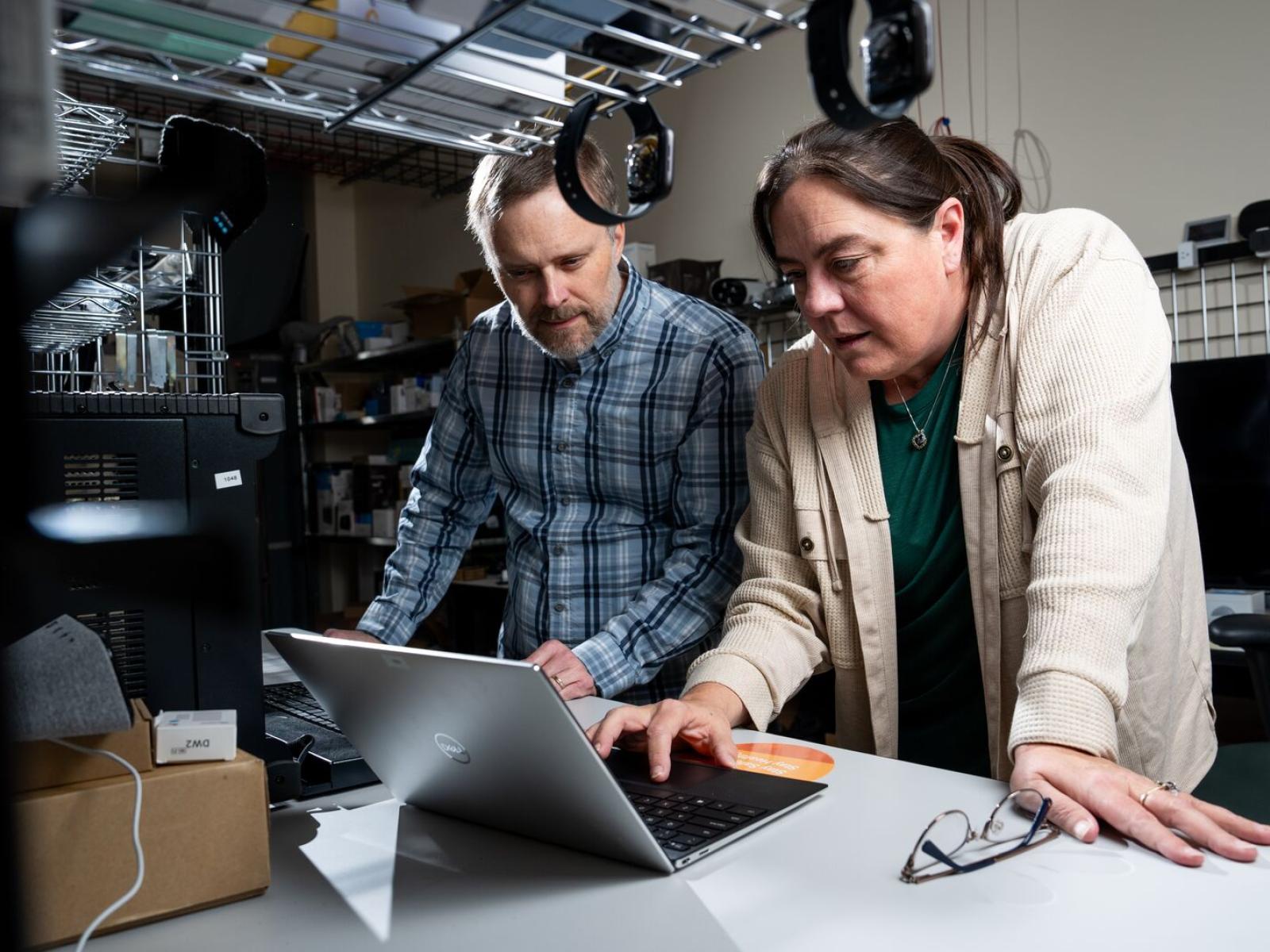Internet of Things Common Operating Environment
Improving research and development for an interconnected world

Penny Mckenzie and Jereme Haack examine radio frequency amplification testing data.
(Photo by Andrea Starr | Pacific Northwest National Laboratory)
By 2025, conservative estimates indicate that more than 80 billion devices worldwide will be interconnected and actively communicating with one another.
PNNL has established the Internet of Things Common Operating Environment (IoTCOE) as an Internet of Things (IoT) and Industrial Internet of Things research and development laboratory, focusing on solving current and future challenges in cybersecurity, energy efficiency, and new technologies.
Rooted in PNNL’s operations research, solution delivery, and basic science capabilities, the IoTCOE provides a variety of physical and logical IoT devices within a laboratory space for scientists, industry partners, and government sponsors. As IoT challenges and concerns expand to include security, connectivity, and sustainability, the IoTCOE enables research that will shape the connectivity of the future.
The IoTCOE delivers capacity for deploying and testing multiple computing devices, digital machines, and wearables in a realistic interconnected environmental ecosystem. Key focus areas include IoT communications, data analytics, and sensor testing and evaluation. The goal is to establish a common foundation of shared components across key IoT systems to make them interoperable “out of the box.”